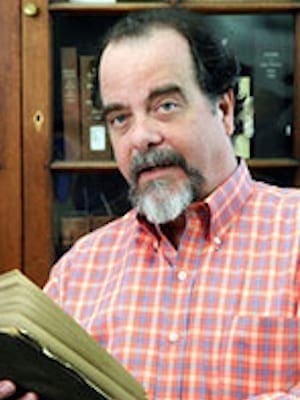I watched and listened as a visiting missionary stood in front of more than 100 Liberian pastors during a question-and-answer session at the end of a three-day conference for rural pastors at Ricks Institute in Liberia.
After a series of questions about the sessions’ content, a pastor asked about an issue that had not been broached: “Is the God of Mohammed the God of Christianity?”
The question is more than an intellectual exercise in Sub-Saharan Africa, where both Islam and Christianity are foreign religions.
They came with missionaries from Arab lands in the Middle East and Christian lands in the West.
The pastor’s question was about a theological assertion, often couched in exclusivist terms. But the question had (and has) a broader horizon.
Christians and Muslims in Liberia share land, government, economy, hopes and dreams as well as sorrows.
Thus, there remains a larger and more critical question: “How can Christians and Muslims live together in peace?”
The missionary was adamant in his denial of any relationship between Allah and the God Christians claim is made known in history through Jesus.
His denial focused on a doctrine of exclusion and avoided the equally important questions of worship, prayer, attention to the poor, alms and the quest for spiritual maturity.
The Liberian pastor deserved more. I am confident that he wanted more.
He needed some guidance toward a way to reflect upon how Christians and Muslims strive to live out their convictions in Liberia with the integrity of their faiths.
That pastor’s question inspired me to reflect on Nicodemus and the Gospel of John, which is rife with misunderstandings embedded intentionally by the author and those carried away from the narratives by readers.
Nicodemus carries the burden of misunderstanding in his conversation with Jesus in John 3.
The phrase “born again” found in the King James Version and New International Version does not appear in other translations, such as the New Revised Standard Version or the American Standard Version.
Instead, a comparison reader will find “anew” or “from above.”
In John 3:4, Nicodemus misunderstood “anew” or “from above.” It was Nicodemus, not Jesus, who thought about returning to the womb to be born again.
Jesus gently chided Nicodemus for the misunderstanding but used the error to shed light upon an insight larger than physical birth, symbolized by “water” (John 3:5), and that is of “spirit birth” (John 3:6).
Alas, characteristic of the Gospel of John, Jesus’ gentle chide adds to the confusion!
Before Nicodemus can ponder the differences between “again” and “from above,” Jesus uses the word, “pneuma,” which can mean one of three things: wind, spirit or breath.
Poor “Nick” concedes to the confusion and exclaims, “How can these things be?” Never again in the passage does he speak. Instead he listens as Jesus elaborates upon “heavenly things” (John 3:12).
“Born again-ism” springs from John 3.
At best, it is a phenomenon that owes allegiance to Nicodemus’ confusion. At worst, it is a quip mined from the ore of “heavenly things” that fails miserably at retaining the context of demand and responsibility that come “from above” when one is “born anew.”
In early February 2013, I was in Freetown, Sierra Leone, with my colleague, Olu Q. Menjay. We had crossed into Sierra Leone from Liberia and travelled the bush roads to Freetown on a pilgrimage, of sorts.
Olu and I have shared interest in Edward Wilmot Blyden, a 19th-century leader whose contributions to education, diplomacy, African identity and religion continue to demand attention.
We were excited in our journey because in Freetown we were to meet Isa Blyden, the great-granddaughter of Edward Wilmot Blyden.
Our day with Isa was full of challenges and discoveries. The highlight was a visit to a mosque in Freetown in the Foulah district, where Blyden lived the last years of his life, creating an educational system for Muslim children that remains a model program today.
Blyden was a Presbyterian missionary who was a pioneer in Christian-Muslim relations in West Africa.
He understood that Christianity and Islam could contribute to the betterment of colonial and post-colonial West Africa.
He lived and died forging mutual respect and understanding among Africans whose traditional religions had been challenged and transformed by the foreign religions (Christianity and Islam) in their midst.
After our visit to the mosque, which included some rich conversation with the imam and those gathered for afternoon prayers, Isa spoke about new tensions in the Foulah Town area.
“There are too many ‘born agains,'” she said. “Muslims from the Arab world and Christians from the West who want to politicize their religions and make them rivals rather than partners.”
Then and now I see her point. It is further evidence that “the born agains” are not interested in “heavenly things.”
 Richard Wilson is the Columbus Roberts professor of theology and chair of the Roberts department of Christianity in the college of liberal arts at Mercer University in Macon, Ga., and, for 2014, the president of the Liberia Baptist Theological Seminary. A longer version of this article first appeared on his blog, Revisiting Liberia, and is used with permission.
Richard Wilson is the Columbus Roberts professor of theology and chair of the Roberts department of Christianity in the college of liberal arts at Mercer University in Macon, Ga., and, for 2014, the president of the Liberia Baptist Theological Seminary. A longer version of this article first appeared on his blog, Revisiting Liberia, and is used with permission.
Editor’s note: “Different Books, Common Word,” EthicsDaily.com’s documentary about Baptists and Muslims finding common ground to work for the common good, is available here. A reflection by Jesse Wheeler of the Institute of Middle East Studies in Lebanon on Allah and God is available here.

